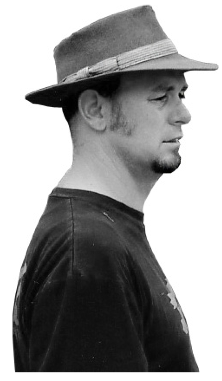
David Hunter was one of the founding members of ANTaR, and an enormously supportive and inspiring activist on Indigenous issues. In October 2000 he was diagnosed with multiple myeloma, and he died in December 2003. At the time current members of ANTaR ACT decided to host an annual memorial lecture in memory of David’s contributions to reconciliation and Indigenous rights. This decision was supported by the Journey of Healing ACT, another group which David supported enthusiastically. The two groups co-hosted the annual lecture for the first four years, with ANTaR ACT continuing alone after Journey of Healing disbanded. The location for each of the lectures has been the Chapel of the Australian Centre for Christianity and Culture , an institution with a strong emphasis on ecumenism, reconciliation, justice and a broad exploration of spirituality.
David was inspired by his Christian faith and membership of the Baptist community in Canberra. He tirelessly worked for reconciliation between non-Indigenous and Indigenous Australians, especially among the Baptist and broader church communities, but also in community groups such as ANTaR. In this work he had a commitment towards healing and wholeness which was reflected in his own writings and reflections, including his PhD topic “Signs of Life” which focussed on the miracle stories in the gospel of John (David’s PhD was conferred post-humously in June 2006). These themes have also formed the basis for the annual lectures.
List of speakers and topics for the David Hunter Memorial Lecture
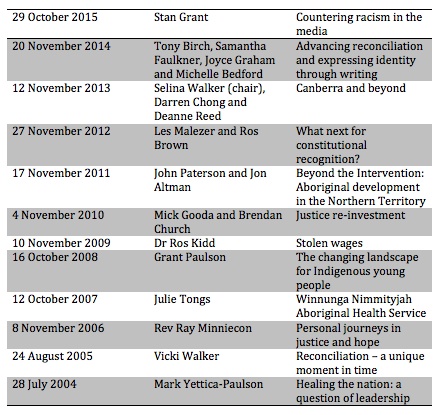
In these annual lectures, we have been privileged to hear some inspirational lectures from Indigenous leaders from around Australia. The inaugural lecture was delivered by Mark Yettica-Paulson on 28 July 2004 with the topic “Healing the nation: a question of leadership.” In this lecture, Mark highlighted some of the challenges of reconciliation, stating that “reconciliation is not only an issue between black and white in our community, it must extend to every unjust situation in our nation. And leadership must be shown at every level, by ordinary people as well as the political, economical and religious leaders”.
Vicki Walker, coordinator of Aboriginal Catholic Ministries in Melbourne, gave the second lecture with the title “Reconciliation – a unique moment in time” on 24 August 2005. Following on from these themes, the 2006 lecture, “Personal journeys in justice and hope,” was delivered on 8 November by Rev Ray Minniecon, Director of Crossroads Aboriginal Ministries in Redfern, Sydney and previously head of World Vision’s Indigenous Programs across Australia. Both Vicki and Ray spoke of practical engagement of faith and scripture with lived experience of Indigenous Australians, and the need to shape identity that draws on cultural heritage as well as spiritual formation.
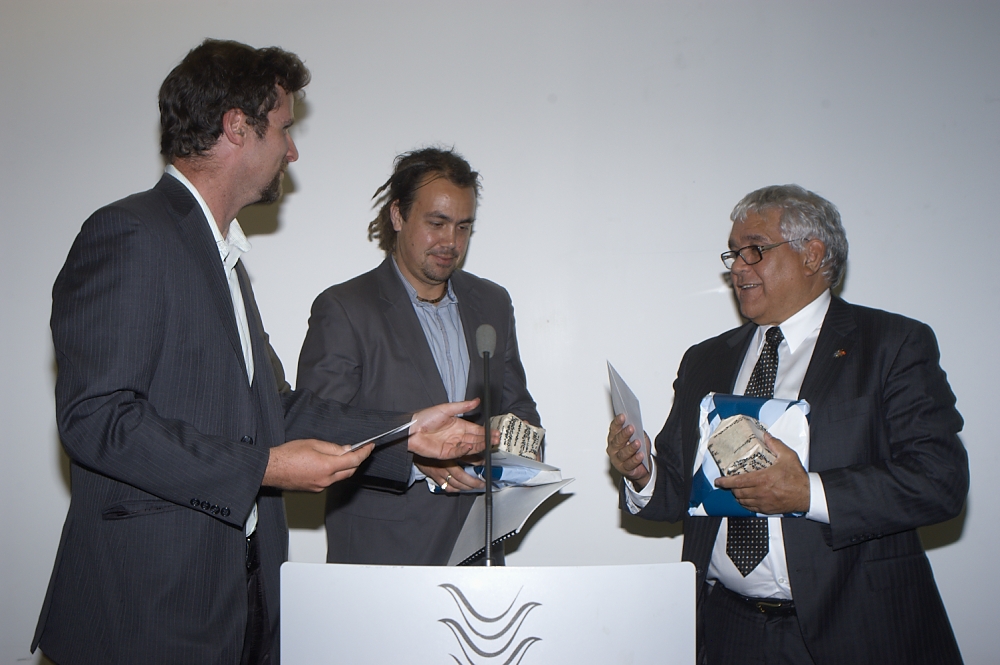
The fourth lecture was delivered on 12 October 2007 by Julie Tongs, CEO of Winnunga Nimmityjah Aboriginal Health Service in Canberra. She related the story of the growth of Winnunga, and shared her own personal journey and energy that has made her such a well known advocate for the rights and needs of Aboriginal and Torres Strait Islander people in the ACT and region.
The 2008 lecture was given by Grant Paulson on 16 October. Grant was based in Canberra at the time, working for Reconciliation Australia in setting up Reconciliation Action Plans. He has been involved in leadership training for Indigenous youth for many years and spoke on “The changing landscape for Indigenous young people.” Grant’s daughter Sondra Paulson sang several of her own and her father’s compositions during the evening.
The 2009 memorial lecture was delivered on 10 November by Dr Ros Kidd, a historian and activist, who spoke on “stolen wages.” Ros was the first non-Indigenous speaker to be invited, but her topic was so pertinent to Indigenous justice that the principle of providing a platform for Indigenous voices was waivered for this year. Ros’ investigation and exposure of this matter extended from her home state of Queensland into the national arena, culminating in the 2007 Senate Inquiry into Stolen Wages.
In 2010, it was decided to have two speakers for the lecture on justice re-investment: one from a broad national perspective and another focused on a local level. On 4 November 2010, the annual lecture was shared between Mick Gooda, Aboriginal and Torres Strait Island Commissioner, and Brendan Church, from the ACT Aboriginal Justice Centre. The lecture highlighted that 2011 marked the 20th anniversary of the Aboriginal Deaths in Custody Report.
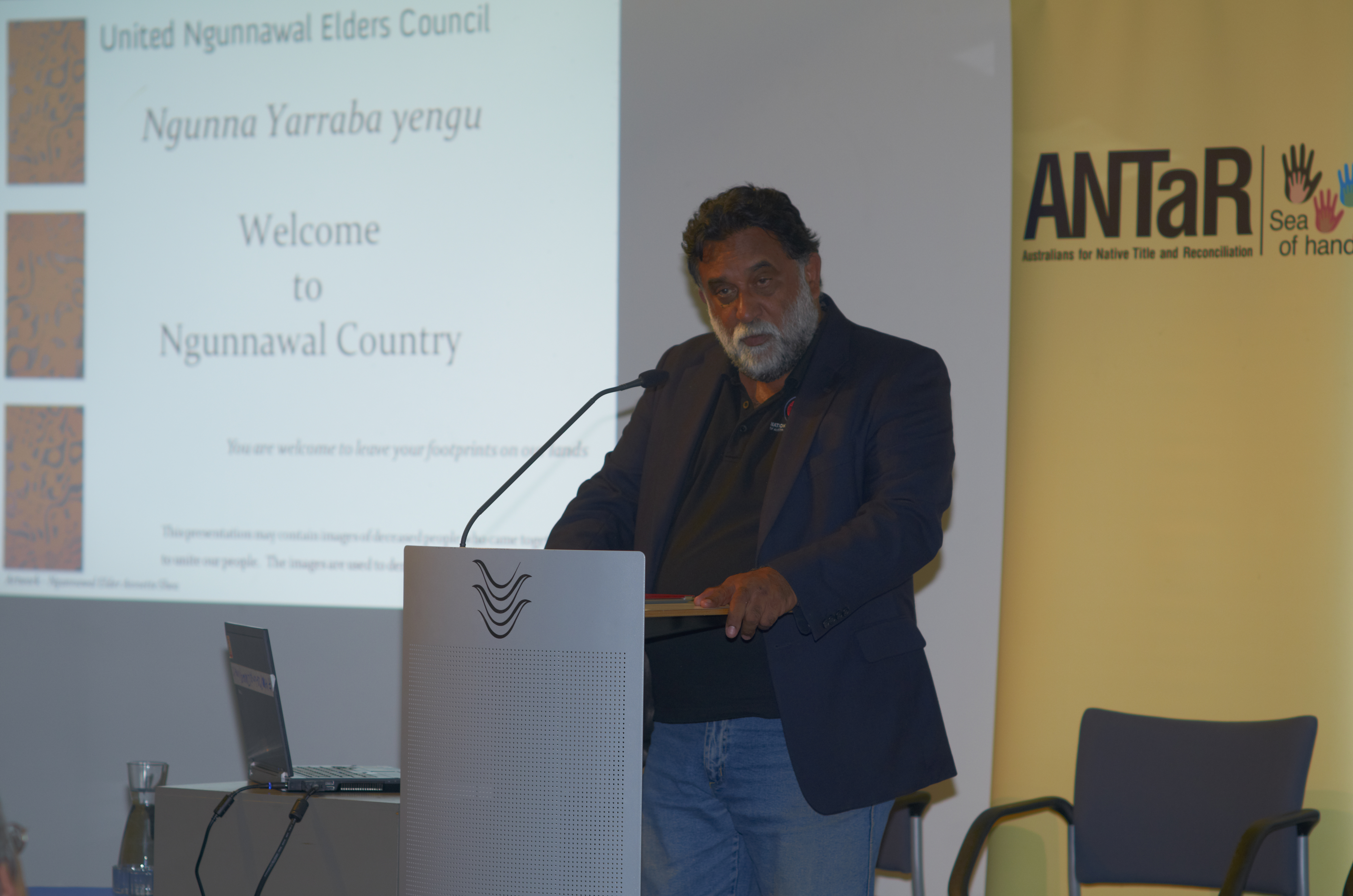
The eighth annual lecture, given on 17 November 2011, was shared by John Paterson, CEO for AMSANT (Aboriginal Medical Services Alliance of the NT) and representative of the Aboriginal Peak Organisations of the NT and Jon Altman from the Centre for Aboriginal Economic Policy Research (CAEPR) at ANU. The topic was ‘Beyond the Intervention: Aboriginal development in the Northern Territory.’
Les Malezer, co-chair of the National Congress of Australia’s First Peoples, was the main speaker for the 2012 lecture held on 27 November with the topic ‘What next for constitutional recognition?’ Ros Brown represented the ACT Aboriginal and Torres Strait Islander Elected Body to give a local perspective.
2013 was Canberra’s centenary year, and the 10th David Hunter Memorial Lecture held on 12 November contributed to the centenary celebrations by inviting a range of young Indigenous Canberrans to share issues important to them and their vision for our city. The evening was facilitated by Selina Walker, the Operations Manager at Gugan Gulwan Youth Aboriginal Corporation. Other speakers were natural resources manager Darren Chong and community worker Deanne Keed. Artworks by Indigenous students from CIT were on display along with a series of photographs by Joe Lafferty.
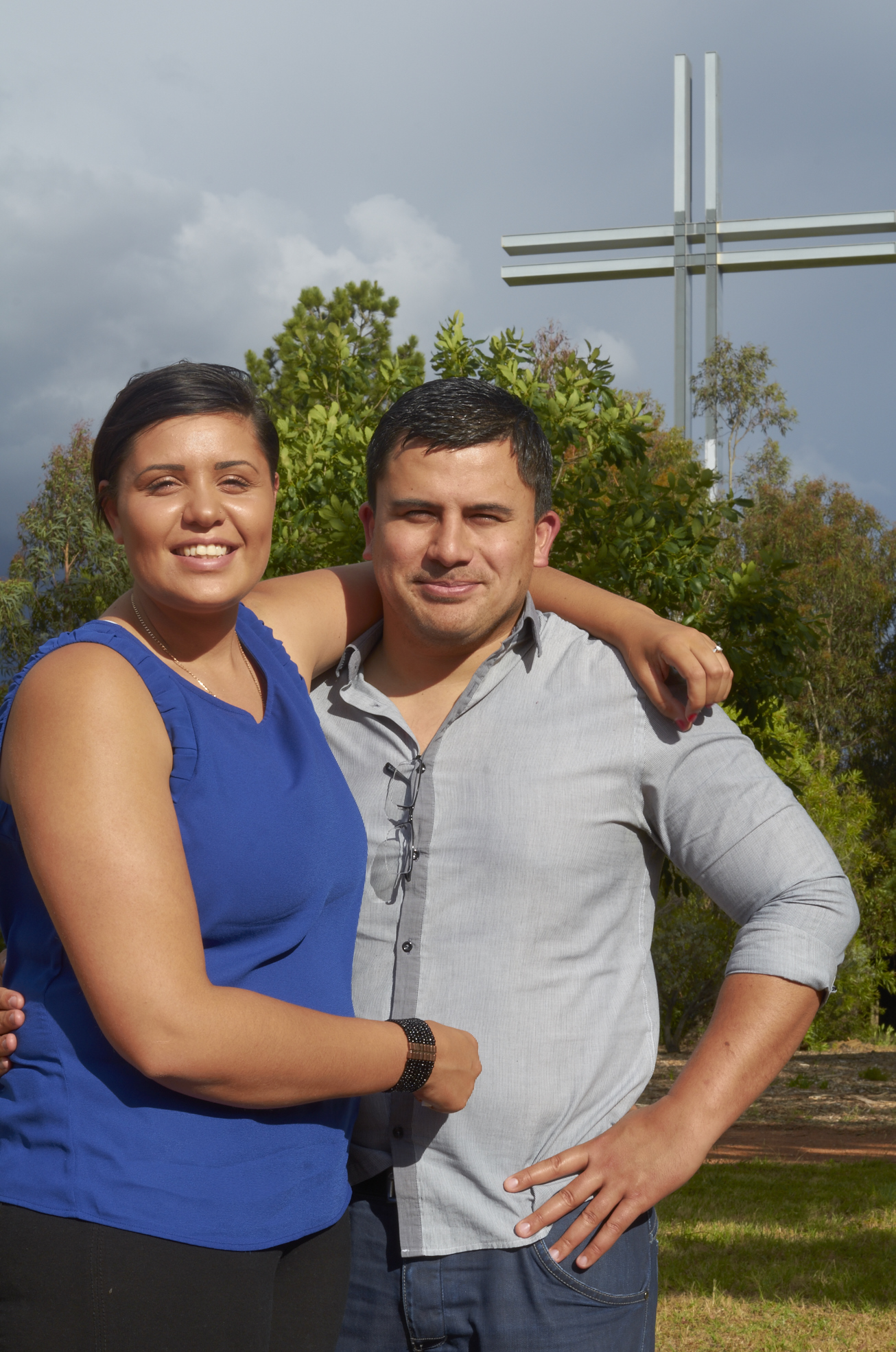
In 2014, the lecture focused on the power of writing for advancing reconciliation and expressing identity. Miles Franklin Award nominee author Tony Birch was the keynote speaker, and was complemented by poetry readings from three ACT-based Indigenous writers from ‘Us Mob Writing’: Samantha Faulkner, Joyce Graham and Michelle Bedford. Tony shared a narrative from his archival research into the resistance of an Indigenous community to official attempts to forcibly remove them from their land in Victoria. This historical narrative clearly resonated with present day policies of disenfranchising remote Indigenous communities. The three ACT poets demonstrated that poetry can be a powerful mechanism of finding one’s voice and identity in a language that was once used for colonial oppression.
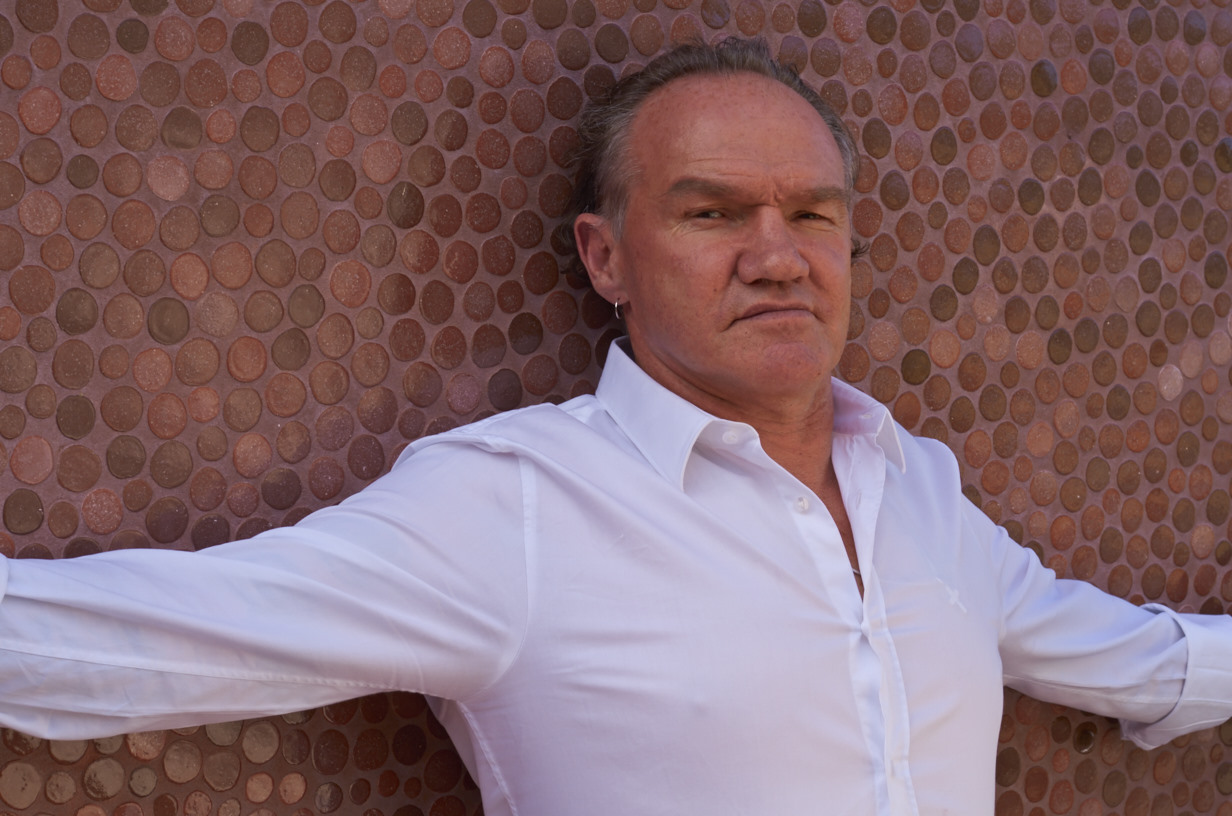
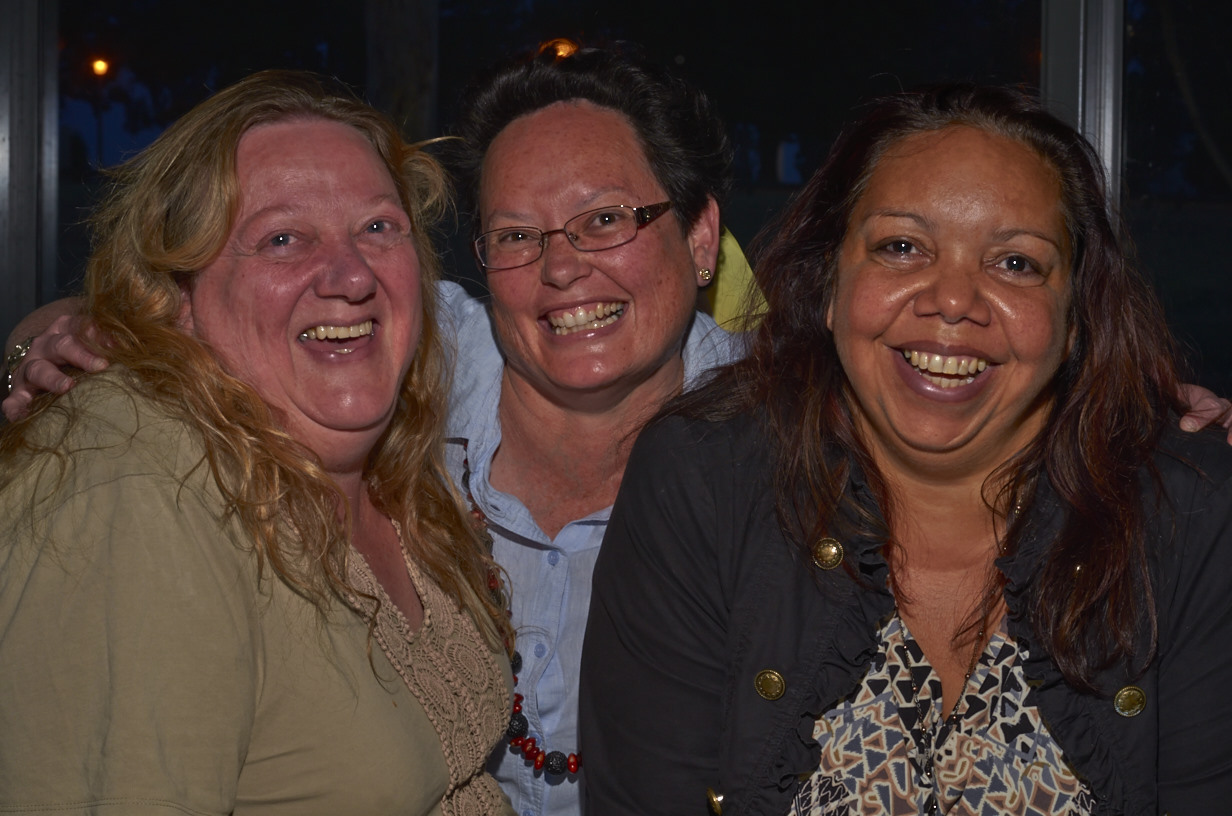
The 2015 David Hunter Memorial Lecture focussed on ‘countering racism in the media’ and was delivered by Stan Grant, a multi‐award winning journalist, current affairs host, author and speaker with Kamilaroi and Wiradjuri heritage. The gracious welcome to country was given by Auntie Agnes Shea who has known Stan since he was a young child. Stan Grant is Indigenous Editor for The Guardian Australia, Managing Editor for National Indigenous Television and International Editor for Sky News. He began his talk describing the response to his widely distributed article in The Guardian relating to the racism underlying the booing of Australian Rules Football player and 2014 Australian of the Year Adam Goodes during the 2015 AFL season.
Stan expressed surprise and frustration at some reactions to his article where readers were not aware of the history of our Indigenous people. He recounted some of his own story, relating how his family had moved frequently so that he didn’t begin formal education until around 13 years of age. Despite being in a loving and stable family, dispossession and shame were part of his own story. He recollected childhood experiences in the sixties of being afraid to return home if there was a car outside the house, in case it was the authorities waiting to remove him from his family. This and other personal stories reminded us that even though he has become highly successful in his career, Stan has had to overcome significant disadvantage. He told us that this is the common experience of all Indigenous Australians.
Stan then highlighted the appalling statistics relating to Indigenous education, incarceration, health and every other socio-economic indicator, reminding us of topics that have been covered in previous Memorial Lectures and which, sadly, have not seen much progress in the thirteen years since these lectures began. All present found Stan Grant an engaging and challenging speaker. We clearly still have much to do to combat racism and disadvantage for our Indigenous community.
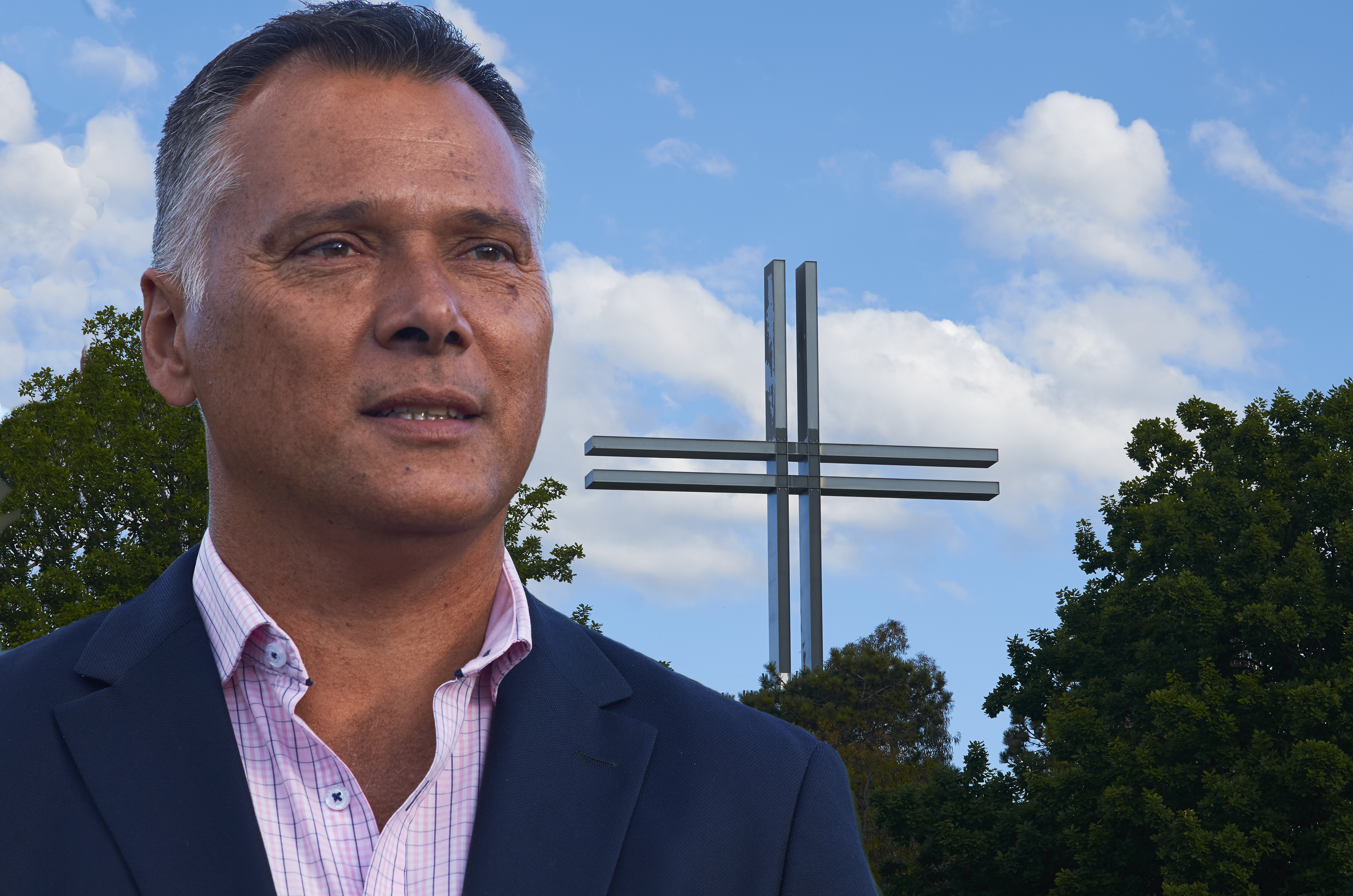
The memorial lecture has been a wonderful tribute to David Hunter by both keeping his memory alive and keeping the Canberra community focused on important issues he felt passionate about and worked hard to progress.